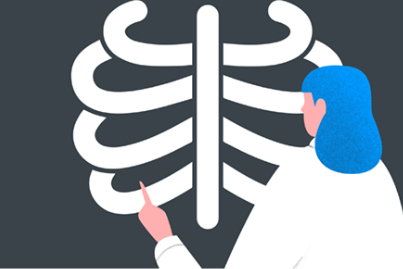Why is CPD important in the NHS?

Continuing Professional Development (CPD) is a win:win for NHS staff, and patients, who benefit from better care.
It's actually written into the NHS Constitution that trusts must invest in the skills and development of all their full- and part-time employees.
All nurses and midwives must complete a minimum of 35 hours of CPD to comply with the National Medical Council (NMC) – while all doctors must complete CPD to maintain their registration. CPD is also a key part of career progression. As such, all NHS staff complete annual development reviews and create personal development plans, giving them the opportunity to learn new skills, take on new responsibilities, or progress into a new specialism.
Find out how to record compliant CPD with OneFile.
But what counts as CPD?
From e-learning to attending conferences, there are loads of different ways you can rack up your CPD hours. Details vary according to medical specialism, so we've chosen our top 5 activities that are suitable for everyone:
Training programmes
Staff can complete study days, workplace training, or even degree apprenticeships – almost any training that furthers development and improves patient care is acceptable.
Appraisals, reviews & discussions
CPD recognises the value of professional discussion in the workplace, which help staff to reflect on their learning and set targets for their future development. These interactions can be formal or informal – from conversations on the ward to annual appraisals. Activity can be recorded in a number of ways – either written on paper or recorded electronically and uploaded to a CPD platform.
Conferences
There's a wide range of healthcare conferences available across the country. These events help staff to stay up to date with specialist developments, share knowledge, and network with colleagues and peers. It can be tricky to record learning which has taken place at a conference – find out how to keep your CPD records compliant here.
Elearning
E-learning is a good way for professionals to learn at the time and place that suits them. With the right e-learning tools, staff can access interactive content such as quizzes – all of which can be tracked online, so it's easy to record in a compliant way.
Informal learning
In the NHS learning rarely stops, and so even observing colleagues, attending meetings or reading a book count towards the target of CPD hours.
Now you know what CPD activities are available in the NHS, you now need to record them properly. Without compliant tracking and recording, CPD evidence may not be valid, which could impact the status of your staff and trust.
To make sure you record compliant CPD activities, read our free download: Recording CPD: a guide for health workers.
This article includes research and opinion sourced by OneFile at the time of publication. Things may have changed since then,
so this research is to be used at the reader's discretion. OneFile is not liable for any action taken based on this research.


